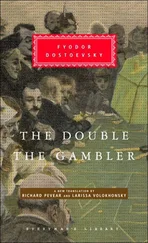“Hello, Whit,” Talia said sarcastically. “Care to help me dissuade these two lovely ladies from ransacking my apartment?”
One of the women shot Whit a dart with her eyes, and quickly he extended his hand to her. Talia introduced her as a city attorney named Chris. The second woman, Katherine, was Laurel ’s boss at the shelter. Talia said the two of them were hoping that Laurel had left the prints she had made from Bobbie Crocker’s negatives behind in the apartment.
“I told them,” Talia was saying, “there’s no way they’re here. We went through this place just a few hours ago. And after Laurel ’s little episode on Saturday, I’m quite sure she’s hidden them somewhere. I said we might find some lingerie that will leave us all a little embarrassed. But we won’t find the photos.”
“Talia, we don’t want to ransack your apartment,” said Katherine. “You know that. But how do you know for sure the photos aren’t here? I’ve seen them, I know what we’re looking for.”
“So do I. And it seems to me you’re more worried about those photos than you are about Laurel.”
“You know that’s not true. Of course I’m worried about Laurel. We all are.”
The attorney nodded earnestly and then said, “But those photos are worth an enormous sum of money to BEDS right now. We can’t let anything happen to them. That’s the reason we’re here. What if Laurel…”
This was too much for Whit: “What if Laurel what?”
The woman rolled her head on her shoulders and made a wide-eyed, eyebrows arched, you-never-know sort of face.
“You really don’t get it,” he said. “ Laurel would never do anything to those photos. They’re her life right now.”
Katherine placed her fingers gently on his elbow to pacify him. He restrained himself from shaking them off. “I love Laurel. She’s like a daughter to me. Someday I hope she’s running the shelter. That’s how much I care for her and respect her and trust her. But she’s in trouble right now. Something about this mad dash home doesn’t quite ring true. At the same time, I have a woman willing to make a humongous donation to the shelter if we give her the photos-almost enough to cover what we’re going to lose in government support this year. That is one hell of a nice Band-Aid.”
“You mean all you have to do is turn over a person’s life’s work,” Talia said mordantly.
“First of all, it isn’t his life’s work. It’s a few hundred images, tops. Bobbie would probably want us to hand it over given the money we’ve been offered. Bobbie loved what the shelter stood for and what we did. He would want to make sure it remained solvent.”
“And what of Laurel?” asked Whit. “What of the work she’s put in?”
“They’re not her photographs. She has no right to them. Besides,” she said, and here she paused for a moment, as if trying to find the correct words. Finally: “Besides, if I’d known she would take this all so…so seriously, I would never have let her near them.”
“Still, don’t you think this is an awfully scary quid pro quo? A very bad precedent?” he continued.
“Here’s what I see. I have a friend who is losing her grip over some photos she probably shouldn’t have, and I have a benefactor who wants them badly. A hundred thousand dollars badly. I’m sorry, Whit. I’m sorry, Talia. But this is a no-brainer.”
Talia shrugged and motioned the two women inside the apartment. “Go ahead,” she said. “But you won’t find them.”
And she was right.
L AUREL HAD NEVER been to the prison before. Never driven the long, two-lane road surrounded on both sides by nothing but farmland that led from Saint Albans to the correctional facility. Never noticed that coils of concertina wire have anvil-shaped razors-because, of course, she had never seen the wire up close. She saw that the prison’s squat cinder-block buildings stretched out like the spikes on an asterisk. The asphalt basketball court had a wire fence and a wire roof. She saw the remains of two massive gardens on the other side of the walls, one for that summer’s vegetables and one for flowers. The vegetable garden was easily a couple of acres: The long rows of tomato cages alone must have stretched the length of a tractor trailer truck. The woman with her, the woman who was driving, told her as they parked that the inmates grew enough vegetables here to feed the prison through the summer and fall. She admitted to Laurel that she honestly didn’t know what they did with all those flowers. She was from the Department of Crime Victim Services, and she was with Laurel because the social worker from BEDS was going to see her own perp.
That was the term this woman named Margot Ann kept using. Perp.
And she was not about to let Laurel go alone. Margot Ann was even taller than Laurel, her black hair was just starting to gray, and she wore it boyishly short. Originally, she was from Jackson, Mississippi: Hence, she said, the use of two first names instead of one. She had met her husband, a native Vermonter, overseas when they had both been in the National Guard. She helped coach the girls’ basketball team at the high school in her community, although her own children were all boys and spent most of the time in the winter on their snowboards. She had shared much of her life with Laurel on the drive to Saint Albans. Laurel guessed this was supposed to make her feel more comfortable, more at ease. They had done all their prep work the day before. In theory-and Margot Ann said theories meant little in a clarification hearing like this-she and Margot Ann would meet with Dan Corbett for perhaps half an hour. She would ask the questions about his father and his grandfather that interested her, and he would share with her the letter he had written. But it wouldn’t be simple. Not logistically, not emotionally. Laurel understood. Now, lulled by Margot Ann’s conversational drone, she felt oddly airy in the passenger seat of the woman’s Corolla, as if she were suspended on a Styrofoam noodle in the swimming pool back in West Egg, a little girl half in and half out of the water.
At the prison’s main entrance, she and Margot Ann gave up their keys and their pens and their cell phones. They gave up their vials of pepper spray. (Margot Ann, Laurel saw, carried one, too.) They were met by the facility’s superintendent and a correctional officer who would escort them to the room where the small hearing would be held, but who wouldn’t actually join them for it. The officer would wait just outside the room’s glass door, but there would only be four of them present in the hearing: Margot Ann, Dan Corbett’s therapist, the victim and the…perp.
There is that four-letter word again, Laurel thought, as she surveyed the metal detector in the small, spare lobby. Perp . It almost sounded like one of the names Corbett and Russell Richard Hagen had called her that day on the dirt road in the woods.
Inside the prison, she learned that the facility’s myriad metal doors were opened and closed electronically by a correctional officer with a gun in a booth: He was surrounded by cinder-block walls and bulletproof glass, and he could see the doors throughout the building on closed-circuit television monitors inside his cubicle. From there, he pushed the buttons that slid steel bolts back and forth across the entire prison. Guards would radio to him which door they wanted opened: “One door.” “Two door.” “Three door.” “J”-meaning the door to the J-wing, the pod with the sex offenders. That’s where they were going. The sex offenders had their own wing because the rest of the prisoners detested them. The correctional officer who was accompanying Laurel and Margot Ann said that only last week he had broken up a fight between two inmates because one had wrongly accused the other of being a sex offender.
Читать дальше












